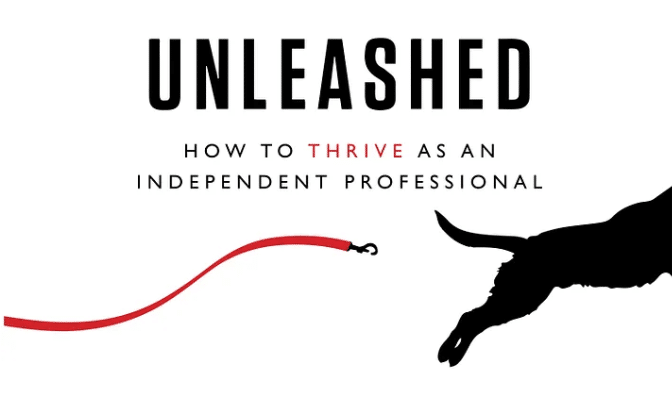
David is a guest on Episode 17 of Unleashed — How to Thrive as an Independent Professional.
Will Bachman: Give us a snapshot of your background, how you set up your firm and how it’s grown?
David Burnie: I was at McKinsey and Company from 2003 ’til 2011, when I left the firm to found The Burnie Group. I started as an independent, but I had the aspiration to have my own firm. I thought the traditional model — having partners sell the projects, but then leave the team to execute — was one that could be improved upon. I also felt there was an opportunity to leverage technology partners and embed specific software within our consulting. That’s really what The Burnie Group stands for today — experienced teams combined with leveraging technology.
In terms of the journey, I started just doing my own consulting projects. One of my best sources of projects has actually been the McKinsey network. Early on I was an army of one: I would leverage my network to build teams to execute on a project. That’s how I got started bringing teams of people to the table versus just myself. I recognized that it’s helpful to build relationships and work together on a regular basis. That’s been the evolution. Today we have approximately 20 full-time team members, as well as leveraging Umbrex to help deliver on projects.
How do you recommend independent consultants make the decision you did, to go beyond using subcontractors and moving to actually hiring employees?
It depends on the type of work you plan on doing. If you have a specific area of expertise you can start to build teams, but if you’re going to be more of a generalist it’s a bit more difficult. At the Burnie Group we have one strategy practice where we’re bringing in custom-built teams for the client work that we do. We also have a technology and operations practice, which is where we have most of our full-time staff members.
The strategy practice is focused on delivering a non-specific solution. If we’re doing a strategy project in healthcare and technology, it’s going to be a different team than if we’re doing a project in retail operations. That’s where we’ve leveraged the independent consulting model. The second practice area, which we call technology in operations, is where we’re building specific expertise and approaches to getting things done. It’s a repeatable process, and it makes sense to have people on who are full-time.
How does your technology solutions practice work? Do you have agreements with software companies or have you built it yourself?
Let me give you an example. One of our practice areas is around robotic process automation and automation in general. It allows you to automate the work that’s done when you have people working across multiple systems in a fashion that can be replicated or in a standardized process.
We recognized that it would be great for us to be able to deliver that technology. We looked at the market to understand who the best players were and what the best technology was, and we decided to partner with a number of them. Now when we go to clients, we can provide both consulting services around robotic process automation and we can also deliver the actual solution. We’ve built teams of developers who can build the code to execute against a robotic process automation project, and we’ve become a leader in the field.
What it takes is identifying a certain type of technology that works well with the work you’re doing, then reaching out and saying, “How can we work together? What are the options for us to really leverage your technology?” Many of the software providers love having smart people out selling their software, so it’s a very nice fit.
How are you using blockchain technology?
Blockchain is essentially a ledger system that is fully secure. It can’t be hacked, and it allows organizations to eliminate third party management of transactions. It opens up all sorts of different solutions. We’re working especially with financial institutions and healthcare from a consulting strategic perspective to identify how blockchain technology can be leveraged and used. Eventually we’ll build the resources and capabilities to help them execute.
What is your client development process? How do you find new clients?
The method that is most effective is leveraging your direct network or referrals. My biggest weapon is a cup of coffee. Going out, meeting with people, and talking about what their biggest problems are, what are the things that are keeping them awake at night. Usually that will lead to a discussion about how we can help them.
Secondarily, referrals are a big source of business. When we do projects with clients, we’ll go back to them and say, “Hey, are there others you know who are facing similar challenges where we can help?” If you’ve done a good job, they’ll be happy to connect you to others who are facing similar problems or trying to solve similar issues.
Have you found it makes sense to invest time in writing or speaking?
There are a few areas where we’ve invested in visibility. One is our website, and we have a monthly newsletter which we distribute to all of our former clients. Our website is an area where we’ve invested a lot of time and energy. I can tell you that 100% of the time, if you’re working to finalize a project, everyone in on that decision is going to your website to see what you stand for and what you’re all about. The monthly newsletter a way to be top of mind with all of our clients. Every month we send out information that we hope is relevant to them. Speaking engagements are something that we’re looking into, and white papers and publications are another area where we would love to do more.
How do you manage your own time and the roles of the senior folks at your firm?
The way I spend my time has changed over the past six years. When I first started I was doing everything from selling to executing. As I started to build up a team, we started to separate roles. I spend more of my time on client and business development. If you find people who you can really trust and who are great at execution, it frees you up to be thinking about what’s happening three months or six months from now.
You’ve told me that one of your favorite books is Managing the Professional Service Firm by one of my favorite authors, David Maister. What has it meant to you and what are some of its lessons that you’ve implemented in your own practice?
It’s a book that I would recommend, especially as people are starting out or if you’re looking to transition from being an independent consultant into projects which are a bit larger. It has very good practical advice about how to manage a services firm, and that has been invaluable for me. It’s just really practical advice that helps me think about things like how to set my day rate, how to think about negotiating with clients, how to think about client service and delivery.
Where do you see the Burnie Group being five or ten years from now?
I don’t have a set vision. Many people are focused on targets and metrics. I haven’t said we need to be this big by this many years from now. The important thing for me is that we’re having fun, that we’re doing work that we really enjoy and that we’re really delivering value to clients.
At the end of the day, I want to go home to my family. I’m able to spend time with Mandy, my wife, and my kids Adele, Zach and Hayden. Those are the important things to me. I truly believe that if you do great work and you build great relationships, everything else will follow in terms of growth, revenue and profitability.
How can listeners find you online?
You can either go to our website, www.burniegroup.com, or you can email me at david.burnie@burniegroup.com.

